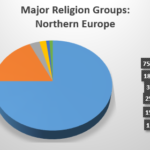Exploring Cultures Where Truth and Knowledge Are Sought Through Faith and Religion

Introduction: The Pursuit of Truth Through Faith
Across history and civilizations, many cultures have approached the search for truth and knowledge not solely through empirical observation or scientific reasoning, but through
faith and religious tradition
. This approach, often formalized as
religious epistemology
, examines how belief systems rooted in faith shape understanding, justify knowledge, and guide communal life. In this article, we explore the foundations and practical realities of cultures where truth and knowledge are sought primarily through faith or religion, providing actionable steps and real-world context for those interested in engaging or understanding such epistemologies.
Understanding Religious Epistemology
Religious epistemology is a branch of philosophy concerned with the nature, sources, and limitations of religious knowledge . It addresses questions such as: How can religious beliefs be justified? What counts as evidence or warrant for religious claims? Can faith itself be a legitimate source of knowledge? These questions are critical in societies that prioritize faith as a means of finding truth [1] .
Key approaches within religious epistemology include:
- Fideism : The view that faith is independent of reason and that religious belief does not require rational justification.
- Reformed Epistemology : Argues that belief in God can be rational and justified even without evidence, often relying on religious experience as a foundational source [2] .
- Evidentialism : Maintains that beliefs must be supported by evidence to be rationally justified, a standard often challenged in faith-based cultures [3] .
These perspectives influence how different cultures and religious communities frame truth and knowledge, shaping education, law, and social practice.
Historical and Contemporary Examples of Faith-Based Cultures
Historically, many societies have regarded religious faith as the primary or exclusive pathway to understanding ultimate truths:
- Medieval Europe : Christian doctrine shaped not only personal belief but also legal codes, scientific inquiry, and the arts. Truth was measured against Church teaching, with the Bible and Church tradition as final authorities [1] .
- Islamic Golden Age : Islamic civilization integrated faith and reason, with scholars like Al-Ghazali arguing for the primacy of revelation while also engaging with philosophy and science under religious frameworks.
- Contemporary Religious Communities : In many present-day societies, including Orthodox Judaism, certain Christian denominations, and Muslim communities, truth claims are evaluated through scriptural authority, religious tradition, and spiritual experience.
In such cultures, religious leaders and sacred texts often serve as epistemic authorities, shaping what is considered true or knowable.
Accessing and Engaging with Faith-Based Knowledge Systems
If you are interested in participating in or understanding communities where truth and knowledge are sought through faith or religion, consider the following steps:
- Identify the Community or Tradition : Research specific religious communities-local congregations, temples, mosques, or synagogues-where faith-based epistemology is central.
- Attend Public Services or Classes : Many religious organizations offer public lectures, study groups, or services where foundational beliefs and their epistemic justifications are discussed. You can search for official websites of local religious institutions for schedules and contact information.
- Consult Religious Leaders : Leaders such as pastors, rabbis, imams, or priests serve as guides in understanding how truth is pursued within their tradition. You may contact them through official channels-phone numbers, email addresses (usually available on institutional websites), or by visiting in person during open hours.
- Study Sacred Texts and Commentaries : Access to foundational religious texts (the Bible, Quran, Torah, Vedas, etc.) is often available at public libraries, religious bookstores, or official publisher websites. Many faith communities provide free study resources and guided reading sessions.
- Participate in Interfaith Dialogues : Interfaith organizations often host public forums and workshops to discuss how different cultures approach truth and knowledge. To find events, search for “interfaith dialogue” along with your city or region.
It is important to approach these opportunities with respect for differing perspectives and an openness to learning how faith shapes epistemological frameworks.
Benefits and Challenges of Faith-Based Epistemologies
Cultures that prioritize faith in the pursuit of truth often report several benefits:
- Community and Shared Purpose : Shared beliefs foster strong social bonds and a sense of belonging.
- Ethical Guidance : Religious epistemologies often provide clear moral frameworks, shaping behavior and social expectations.
- Resilience in Uncertainty : Faith-based knowledge can offer stability and hope in times of crisis or ambiguity.
However, challenges arise, including:
- Navigating Pluralism : When multiple religious traditions coexist, disagreements about truth claims can lead to tension or conflict.
- Balancing Faith and Reason : Individuals may struggle to reconcile religious convictions with scientific or secular knowledge, particularly in pluralistic societies [4] .
- Addressing Skepticism : Critics may question the rationality of faith-based knowledge, leading communities to develop apologetic or philosophical responses [5] .
Understanding these dynamics is essential for respectful engagement and informed decision-making.
Alternative Approaches and Modern Trends
While some cultures adhere strictly to faith-based epistemology, others blend religious and secular methods of seeking knowledge. For example, many religious educational institutions incorporate scientific curricula alongside theological studies. Interfaith and faith-science dialogue initiatives aim to bridge gaps and promote mutual understanding [1] .

Source: anthroholic.com
To navigate these environments, consider:
- Seeking out educational programs at accredited seminaries, religious universities, or continuing education centers.
- Engaging with online platforms or podcasts hosted by recognized theologians and philosophers of religion.
- Participating in community discussion groups that welcome questions about faith, reason, and evidence.
It is possible to appreciate the value of faith-based knowledge even while pursuing empirical, scientific, or philosophical inquiry.
Step-by-Step Guidance for Further Involvement
If you are interested in deeper engagement with cultures that seek knowledge through faith:

Source: nanoginkgobiloba.vn
- Research the specific tradition or community that aligns with your interests. Official denominational websites and local religious organizations are good starting points.
- Contact local places of worship or community centers to inquire about public events, introductory classes, or opportunities for dialogue. Many organizations provide phone numbers and email addresses on their official sites.
- Attend events with an open mind, seeking to understand the epistemological foundations and lived experiences of community members.
- Read recommended texts by recognized scholars in religious epistemology. For academic perspectives, consult university philosophy department resources or online academic encyclopedias.
- If you wish to pursue formal study, consider enrolling in courses in philosophy of religion or religious studies at accredited universities. For United States institutions, you can search the official websites of universities such as Harvard Divinity School or Princeton Theological Seminary for program details.
Remember: When searching for resources, use official institution names and verified search terms such as “religious epistemology course” or “philosophy of religion program.” Avoid unofficial or unverified sites when seeking serious educational opportunities.
Key Takeaways
Cultures that seek truth and knowledge through faith and religion offer rich traditions and diverse approaches to understanding reality. Whether you are a participant or an observer, exploring these epistemologies requires respect, openness, and a willingness to engage with complex questions. For official guidance or more information, consult established religious organizations, accredited academic programs, or reputable philosophical resources.
References
- [1] Internet Encyclopedia of Philosophy (2025). Religious Epistemology overview.
- [2] Number Analytics (2025). Ultimate Guide to Religious Epistemology.
- [3] Stanford Encyclopedia of Philosophy (2021). The Epistemology of Religion.
- [4] Bethinking (2016). Religious Epistemology Talk by William Lane Craig.
- [5] PhilArchive (2015). Religious Epistemology by Chris Tweedt & Trent Dougherty.






